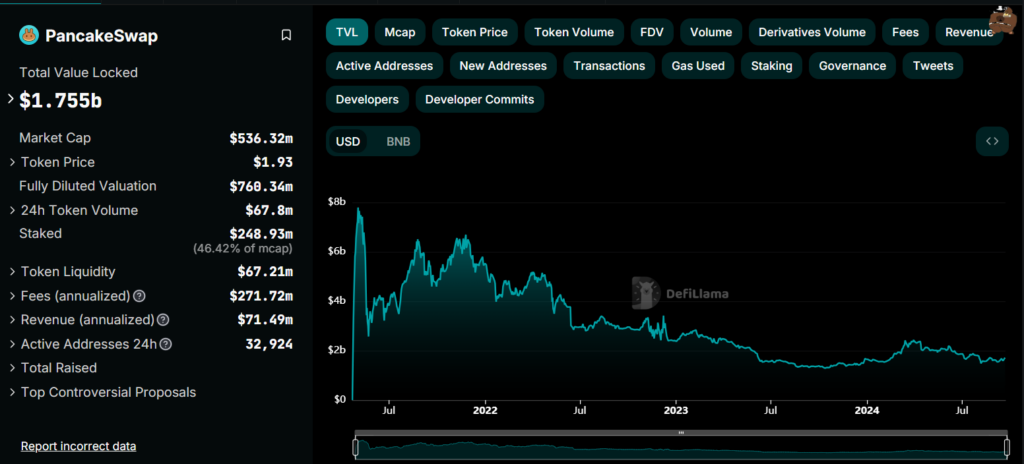PancakeSwap Introduces V4 Update to Boost Efficiency and User Experience
PancakeSwap’s Milestone
Decentralized exchange PancakeSwap has reached a significant milestone, reporting $836 billion in trading volume over four years, with a total value locked (TVL) of around $1.72 billion as of September 2023. Although this figure has decreased from its peak of $7.16 billion in May 2021, the platform still serves over 43 million unique addresses.

V4 Update and Improvements
PancakeSwap announced the upcoming release of PancakeSwap v4, aimed at addressing key issues in automated market makers (AMMs). This update focuses on improving liquidity, interoperability, and scalability. Chef Kids, head of PancakeSwap, explained that v4 would resolve problems like rigid pricing models, limited trading features, impermanent loss for liquidity providers, and high on-chain gas fees.*
Enhanced Trading Features
The new version will introduce dynamic fee tiers, advanced trading tools, and reduced gas fees to enhance the trading experience. These improvements are expected to boost capital efficiency, attract more liquidity providers, and improve overall market depth.
Expansion to New Blockchains
PancakeSwap plans to expand its decentralized exchange (DEX) to more blockchains. Currently available on nine chains—including BNB Chain, Ethereum, and Polygon zkEVM—the protocol is looking to increase accessibility and functionality across additional networks. PancakeSwap aims to fill gaps in the DEX market by offering better user experiences and trading efficiency.
Developer Initiatives
To support the launch of v4, PancakeSwap has introduced a $500,000 developer program and is hosting a “Hookathon” on Dorahacks, open to submissions until the end of September. This effort seeks to attract top developers to help build the platform’s next phase.
*Note: Automated Market Maker (AMM) refers to a type of decentralized exchange that uses smart contracts to determine trade prices based on supply and demand, without the need for traditional market makers.




